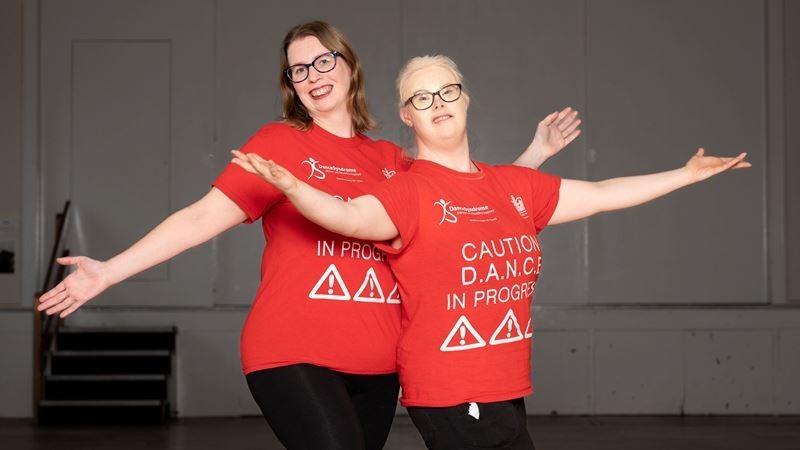Accrington-based DanceSyndrome has produced a series of six videos to help NHS healthcare professionals better understand the opportunities open to people with learning disabilities.
The DanceSyndrome charity was founded by Jen Blackwell who has Down's syndrome and who found it difficult to find opportunities to train and work in dance because of her learning disability.
With the help of her parents, the charity was set up to support people with and without disabilities to work together to follow their dreams in dance.
Now the organisation has worked in partnership with NHS England to produce the six informational videos which demonstrate the many ways that people with learning disabilities can live fulfilled lives, contributing to society and becoming visible leaders, performers, and advocates.
The project has been supported by the national nursing directorate at NHS England and the videos will be shared with healthcare professionals, including midwives and learning disability nurses, to give them new insight into their work with individuals with learning disabilities and their families.
The videos combine information about how individuals with learning disabilities contribute to the services that DanceSyndrome offers with evidence of the health and wellbeing benefits of dancing, as well as the benefits that come from people being included, empowered, respected, connected and enabled to be creative.
Julie Nicholson, DanceSyndrome managing director, said: "This has been such an important project for DanceSyndrome. One of the most important parts of our mission is to change the way that people think about disability and what people are able to achieve with the right support.
"The videos talk about how there is beauty and significance in all movement and the importance of adaptations in making activities truly inclusive and accessible. They show why inclusive activities are important for people with and without disabilities to make connections, build friendships and learn transferrable skills which can be used in all aspects of life.
"The aim is to help people to discover the power of creativity and why it is important to see people with and without disabilities collaborating to choreograph and perform high quality dance pieces in an inclusive, supportive way."
Enjoyed this? Read more from Tim Aldred






















